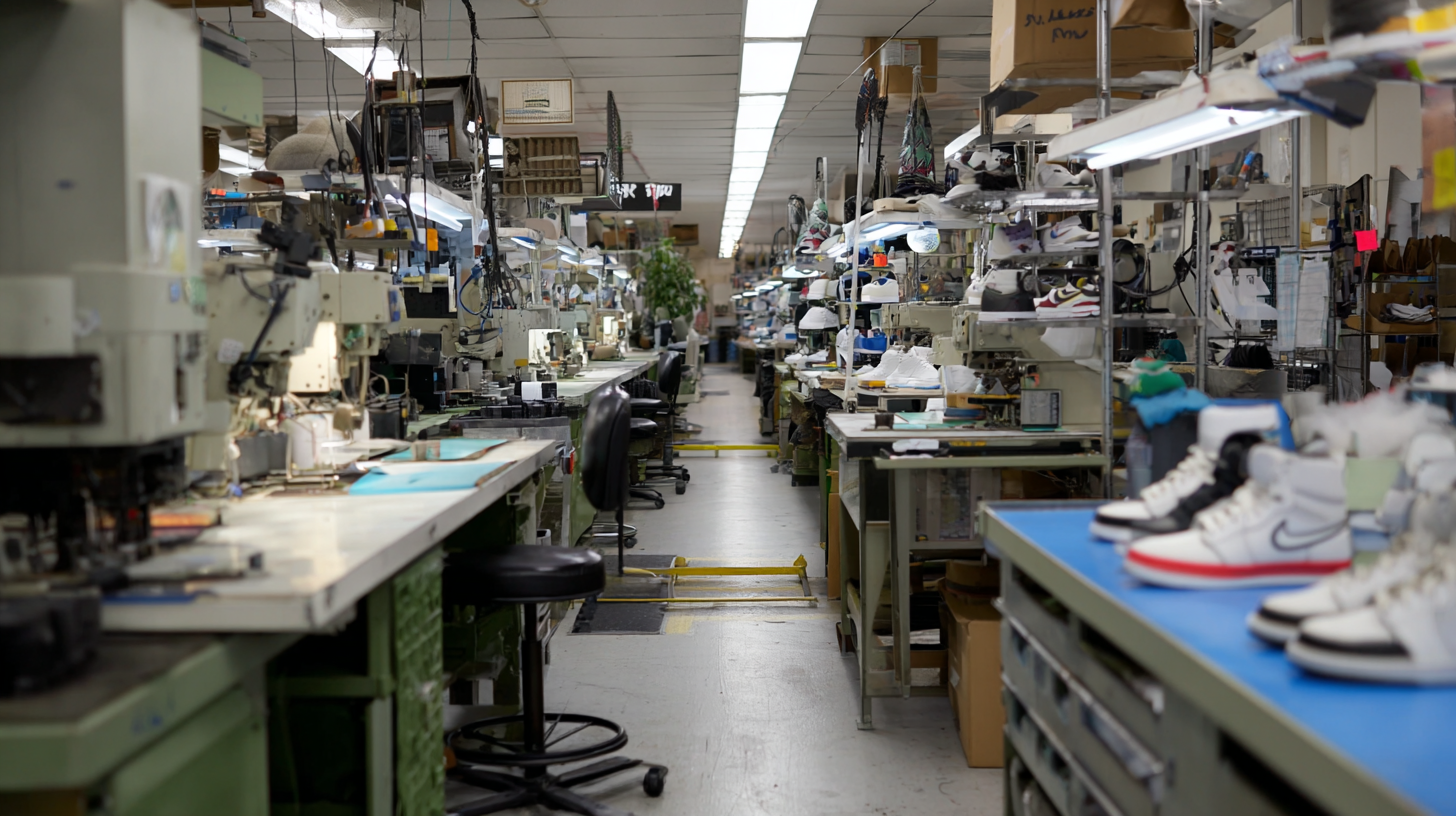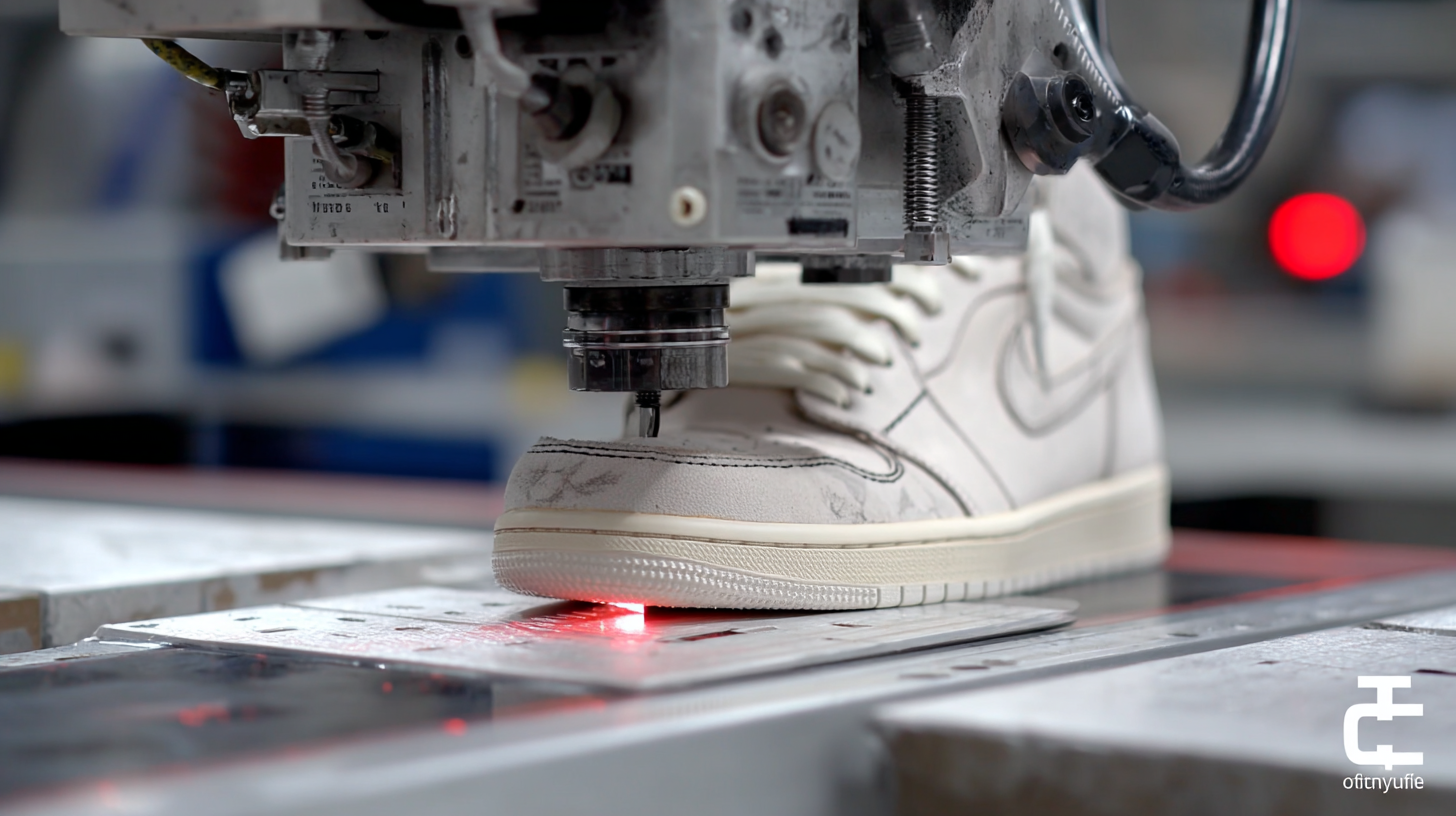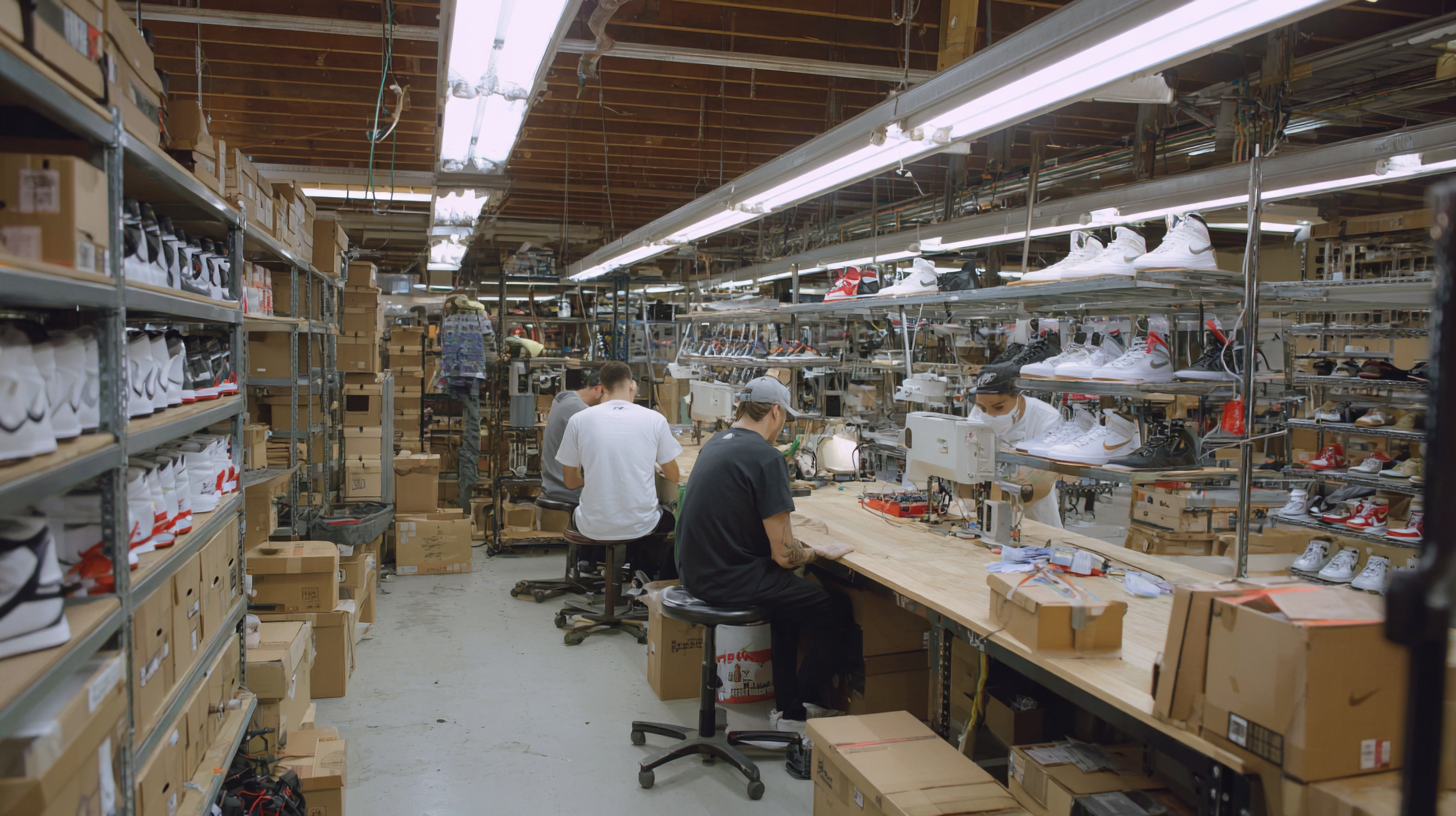
In the ever-evolving world of footwear, the demand for bespoke designs continues to surge, making the role of a Custom Sneaker Factory more pivotal than ever. As we approach 2025, industry analysts project significant growth in this niche market, fueled by consumers' desire for unique and personalized products. This blog will explore the production standards employed by top custom sneaker manufacturers, highlighting the key factors that ensure high-quality craftsmanship and innovative designs.

We will delve into the latest industry data, examining trends that are shaping the future of custom sneakers. Additionally, readers will find essential tips for selecting the right factory to bring their sneaker visions to life, ensuring that they not only meet aesthetic expectations but also adhere to sustainable and ethical production practices.
Join us as we navigate the dynamic landscape of custom sneaker production and uncover what it takes to succeed in this competitive market.
When selecting a custom sneaker factory, several key factors should be taken into account to ensure the best production standards. First and foremost, it's crucial to assess the factory's expertise and experience in the sneaker industry. A factory with a proven track record of manufacturing quality sneakers will bring valuable insights into design and materials, helping you achieve the desired aesthetic and functionality for your custom designs.
Another important consideration is the factory's production capacity and technology. Understanding their machinery capabilities and the scale at which they operate can significantly impact your project timeline and volume requirements. Factories that utilize advanced technology are often able to produce higher-quality products more efficiently, while also allowing for greater customization options. Additionally, don’t overlook the importance of communication and support; a factory that prioritizes collaboration can facilitate smoother project management and lead to better overall outcomes.
| Criteria | Importance Level (1-5) | Description |
|---|---|---|
| Quality Control | 5 | Ensures that each sneaker meets specific standards and specifications. |
| Production Capacity | 4 | Ability to meet bulk orders while maintaining quality standards. |
| Material Sourcing | 4 | Use of sustainable and high-quality materials in production. |
| Lead Time | 3 | Time taken from order placement to delivery of the sneakers. |
| Customization Options | 5 | Flexibility in design choices, colors, and features to meet customer needs. |
| Technology and Equipment | 4 | Utilizing advanced machinery and technology for improved production efficiency. |
| Ethical Practices | 3 | Commitment to fair labor practices and environmental responsibility. |
When it comes to custom sneakers, the production standards play a crucial role in determining quality. According to a report by Grand View Research, the global athletic footwear market is projected to grow from $64 billion in 2021 to over $95 billion by 2028. This growth underlines the increasing consumer demand for high-quality custom sneakers that not only provide style but also durability and comfort. To meet this demand, custom sneaker factories must adhere to strict production guidelines that promote efficiency and quality assurance.
One essential production standard is material sourcing. High-quality materials, including premium leathers and advanced synthetic fabrics, are imperative to crafting sneakers that can withstand the test of time. A 2022 survey by the Footwear Distributors and Retailers of America revealed that 78% of consumers prioritize sustainable and ethically sourced materials in their purchase decisions. Therefore, factories must ensure that they are selecting materials from responsible suppliers to align with consumer expectations and sustainability efforts. Additionally, adhering to quality control processes throughout the manufacturing cycle, including inspection and testing, ensures that the final product meets industry benchmarks for performance and safety.
When it comes to custom sneaker manufacturing, the quality of materials and sourcing processes directly influences the durability and comfort of the final product. Factories must prioritize high-grade materials like premium leather, breathable mesh, and advanced cushioning technology. Each material used plays a pivotal role in enhancing not only the aesthetic appeal of the sneakers but also their functional qualities. Sneakers made from durable materials withstand wear and tear, extending their lifespan while providing consistent performance for active wearers.

Moreover, ethical sourcing is crucial in establishing a reputable custom sneaker factory. Factories should partner with suppliers who adhere to sustainable practices while delivering top-notch materials. This includes tracing the origin of the raw materials, ensuring that they are sourced responsibly without compromising the environment or labor standards. By focusing on both durability and responsible sourcing, custom sneaker brands can promise customers a product that not only looks good but feels great and lasts longer.
Ultimately, the combination of quality materials and ethical practices can elevate a sneaker brand in a competitive market, appealing to conscious consumers who value both performance and sustainability.
In the world of sneaker manufacturing, the significance of skilled labor cannot be overstated. The production of high-quality custom sneakers relies heavily on the expertise of artisans who can integrate traditional techniques with modern technology. Skilled workers bring a deep understanding of materials and craftsmanship, ensuring that each shoe meets the rigorous standards of both performance and style. Their ability to execute intricate designs and utilize advanced machinery sets the foundation for creating unique, custom products that resonate with consumers' diverse tastes.
Moreover, the role of trained labor extends beyond mere craftsmanship. Knowledgeable workers contribute to problem-solving during the manufacturing process, identifying potential flaws and addressing them swiftly. Their experience allows for innovation in production methods, enhancing efficiency while maintaining quality. This combination of talent and technique is what distinguishes a top-tier custom sneaker factory from its competitors, as it nurtures an environment where creativity and precision go hand in hand, ultimately driving the success of the brand and satisfaction of the customers.

In the custom sneaker manufacturing industry, quality control processes are paramount to ensuring consistency and excellence. A comprehensive quality control compliance system encompasses several structured processes designed to monitor and evaluate production standards at every stage. This involves regular inspections and testing to guarantee that materials meet specified criteria, thereby preventing defects and ensuring that each pair of sneakers adheres to brand and customer expectations.
Moreover, integrating modern technologies such as Artificial Intelligence can significantly enhance quality control measures. AI-driven analytics can identify trends in production issues, allowing manufacturers to proactively address potential problems before they escalate. Furthermore, adopting methodologies like Process Failure Mode Effects Analysis (PFMEA) empowers factories to systematically assess risks associated with production processes, leading to continuous improvement and operational excellence. By establishing a robust quality management framework, custom sneaker factories can not only uphold their reputation but also foster customer loyalty through high-quality, reliable products.
